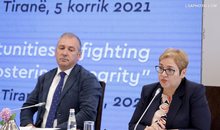
 Flash News
Flash News
Fight between teenagers, 15-year-old ends up in hospital
Kosovo Assembly constitution, proposal for secret ballot fails
Serious accident on the Peqin-Elbasan axis, two people seriously injured
'Fight, fight, fight'/ PD-ASHM towards historic victory, LaCivita mobilizes the campaign at the meeting with the candidates
Car hits pedestrian on Korça - Pogradec road, 43-year-old woman dies
Money laundering, the EU asks Albania to set a ceiling for cash payments
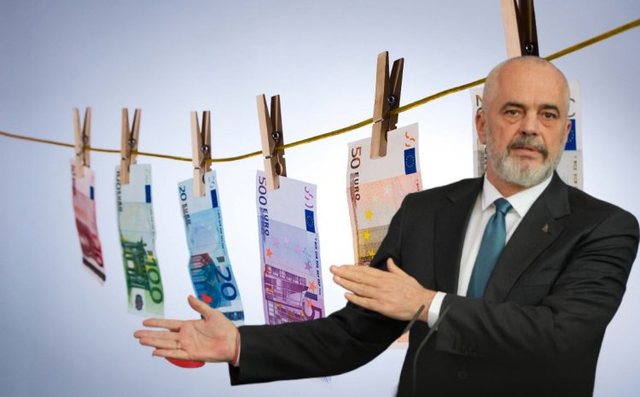
The European Commission recommends to Albania the establishment of a ceiling amount for physical cash payments.
In the latest report of the analysis of Albania's compliance with the legal and regulatory community framework, the European Commission estimates that our country is only partially compliant with the European Union framework in terms of money laundering investigation.
Despite recent progress, Albania's legislation is partially aligned with the EU acquis in this area.
Albania has been on the enhanced monitoring list of the Financial Action Task Force (FATF) since February 2020. In its February 2023 assessments, the FATF assessed Albania's work to address strategic deficiencies and found that our country had substantially completed its action plan to address the FATF recommendations. However, due to concerns about the fiscal and criminal amnesty draft that the government has announced, Albania remains on the "gray list" of the FATF.
Cash payments remain dominant in the Albanian economy, although in recent years there has been an increase in payments with alternative instruments, mainly with bank cards. The high use of physical money in economic transactions favors informality and financial crime, including money laundering from criminal activities.
A similar request for setting a ceiling for cash payments has been expressed for years by the Albanian Association of Banks. According to the Association of Banks, the reduction of physical money in circulation and commercial transactions is a challenge and a requirement for a more organized, more measurable, more disciplined and more stable economy.
Currently, Albania has no restrictions on the value of payments that can be made in physical money for the purchase of goods or services.
According to the Banking Association, setting a ceiling on cash payments by individuals would help reduce tax evasion and help fight money laundering and financial crime in general. Also, the Association of Banks has asked the government that businesses in Albania are forced to accept at least one alternative method of payment, apart from physical money.
Sipas të dhënave nga Banka e Shqipërisë, në mesin e këtij viti numri i kartave bankare aktive arriti në 1.4 milionë, në rritje me 2% që nga fillimi i vitit.
Numri i kartave të debitit arriti në 1.21 milionë, në rritje 2.5% që prej janarit. Ky produkt ngelet dominues dhe përbën afërsisht 87% të numrit të përgjithshëm të kartave bankare. Karta e debitit është një instrument bazik pagese, i lidhur me llogaritë rrjedhëse të bizneseve dhe individëve.
Ndërkohë, zhvillime pozitive këtë vit po regjistrohen në segmentin e kartave të kreditit. Në mesin e këtij viti, numri i kartave aktive të kreditit të sektorit bankar arriti në 116 mijë, me një rritje prej 3.4% që nga fillimi i vitit.
The total value of card payments for six months has reached 26.3 billion ALL, with a monthly average of 4.7 billion ALL, from 4.2 billion ALL which was the monthly average of 2022.
Considering that the July-August tourist peak periods are associated with an increase in card payments, it is expected that the average payments for the second part of the year will increase more. It is believed that the strong growth of tourism is one of the main factors influencing the rapid growth of bank card payments in the Albanian economy./ MONITOR
Latest news


DP candidate: Patronage agents follow us in cars during electoral meetings
2025-05-01 22:40:28



Forza Italia MP: Only Sali Berisha as Prime Minister can lead Albania to Europe
2025-05-01 21:29:47

For those who were scared by Tomorr Alizoti
2025-05-01 21:05:21
Berisha challenges Rama: You promised free healthcare, come here and keep it!
2025-05-01 20:56:58



The six best foods against stomach bloating
2025-05-01 20:04:09


Zelensky: We want peace, Russia responds with attacks
2025-05-01 19:22:07

Berisha: The contract in the US is not just for the DP, but for every Albanian!
2025-05-01 19:08:14
Fight between teenagers, 15-year-old ends up in hospital
2025-05-01 18:44:17






Demi Moore named the most beautiful woman in the world for 2025
2025-05-01 17:34:10
Waltz to step down as Trump's national security adviser
2025-05-01 17:24:25

What has Albania exported the most?
2025-05-01 16:49:18
Accident at 9-story building in Tirana, two injured
2025-05-01 16:47:16
How is lifestyle affecting health? Expert: Addictions are causing malnutrition
2025-05-01 16:32:09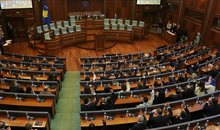
Kosovo Assembly constitution, proposal for secret ballot fails
2025-05-01 16:22:35

Britain in talks with France and Saudi Arabia on recognizing Palestinian state
2025-05-01 15:57:30

Russian drones strike major cities in Ukraine
2025-05-01 15:39:45
Farmers in difficulty, Egyptian potatoes outstrip Steblevë's
2025-05-01 15:31:36
Serious accident on the Peqin-Elbasan axis, two people seriously injured
2025-05-01 15:15:25
Inaugurated a few months ago, Zhupa: Handball stadium, dangerous for children
2025-05-01 15:10:19
Eurostat: Albanians are paid less, but have the longest working hours in Europe
2025-05-01 14:57:32
The most effective vitamins for strengthening the immune system
2025-05-01 14:53:06

May 1/ Workers in Kosovo protest for their rights, demand wage increases
2025-05-01 14:33:55

Roven Zeka met in the cell, SPAK investigates 4 police officers, phones seized
2025-05-01 14:17:09
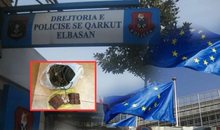



Xhaferri: Pro-Rama polls are manipulated by incinerator payments
2025-05-01 13:23:16
51-year-old woman disappears in Kukës, search begins
2025-05-01 13:02:20

Fallen in England, 32-year-old woman dies after falling from parachute
2025-05-01 12:44:54





Staged explosion in Elbasan, head of family wanted asylum in the EU
2025-05-01 11:17:10
Muzhaqi: ChatGPT prepared a very beautiful speech for me
2025-05-01 11:11:29
Berat Prosecution seeks 6 years in prison for pedophile who molested a minor
2025-05-01 10:53:00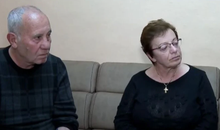

TNT explosion in Elbasan, police react: Cameras have filmed the perpetrator
2025-05-01 10:28:31
7x7 doesn't make 6 million for us, but 33 thousand euros!
2025-05-01 10:23:13

TNT explosion in an apartment in Elbasan
2025-05-01 10:03:01
Accident on the "Memaliaj-Krahës" axis, 71-year-old man loses his life
2025-05-01 09:44:45
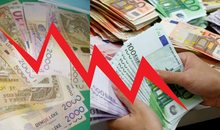

Vehicle bombed in Tirana, explosives placed in front tire
2025-05-01 09:10:30

Car hits pedestrian on Korça - Pogradec road, 43-year-old woman dies
2025-05-01 08:39:39
Sunshine and temperatures up to 30 degrees Celsius, weather forecast
2025-05-01 08:21:48
Today is Workers' Day, what does May 1st represent?
2025-05-01 08:05:44
Posta e mëngjesit/ Me 2 rreshta: Çfarë pati rëndësi dje në Shqipëri
2025-05-01 07:55:45
Journalist: Rama used the money to lobby for himself, not for Albania
2025-04-30 22:54:10
Kurti's invitation to constitute the Assembly, PDK responds, LDK refuses
2025-04-30 22:36:18






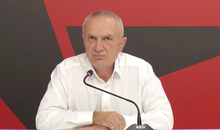




Fiscal peace or electoral coup?! Businesses owe 1.6 billion euros to the state
2025-04-30 18:59:05


Finland passes law banning cell phones in schools
2025-04-30 18:00:25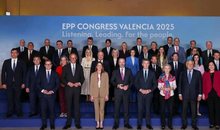

Italian court overturns Hysaj's conviction, Albanian defender fined 40,000 euros
2025-04-30 17:32:13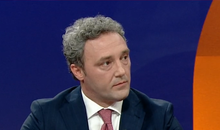


Minerals deal with US could be signed within next 24 hours, Ukraine confirms
2025-04-30 16:53:19

Stress at the office can be more dangerous than smoking!
2025-04-30 16:18:54